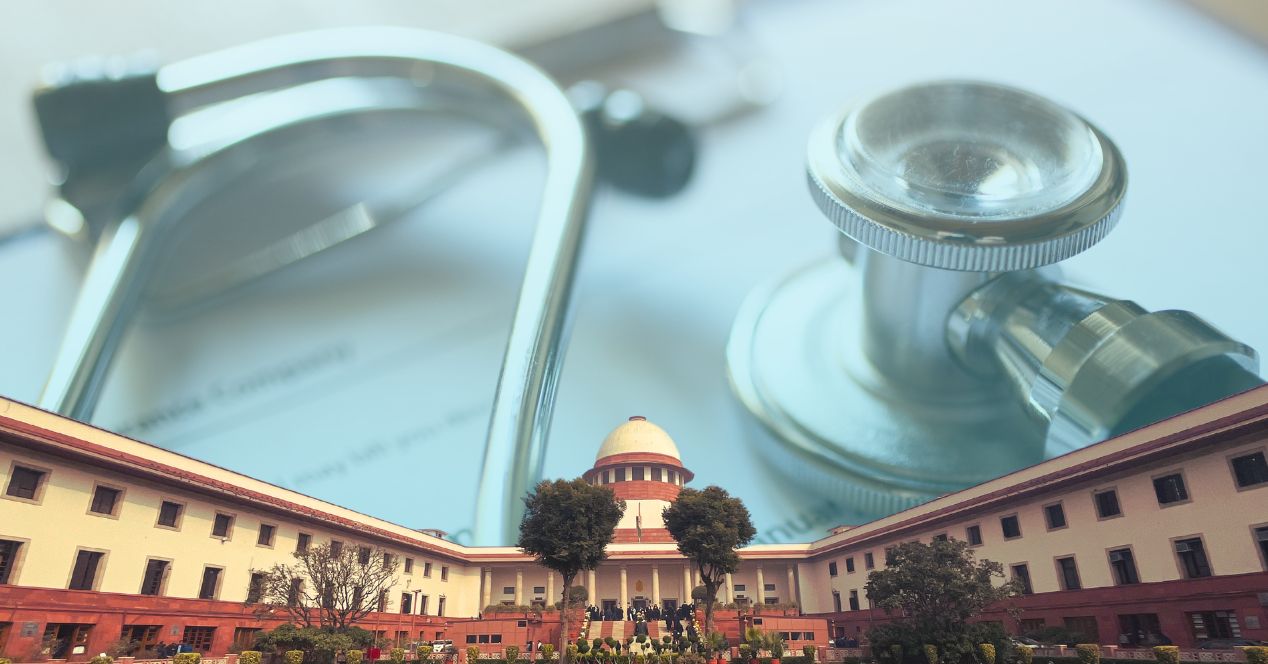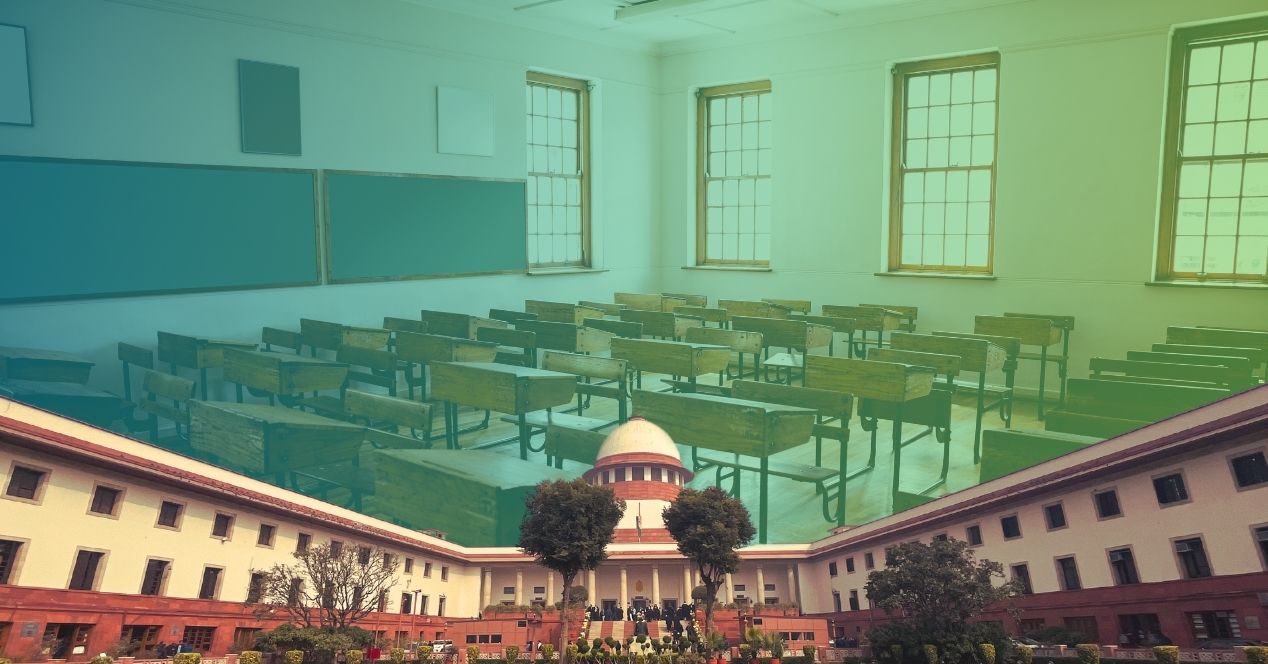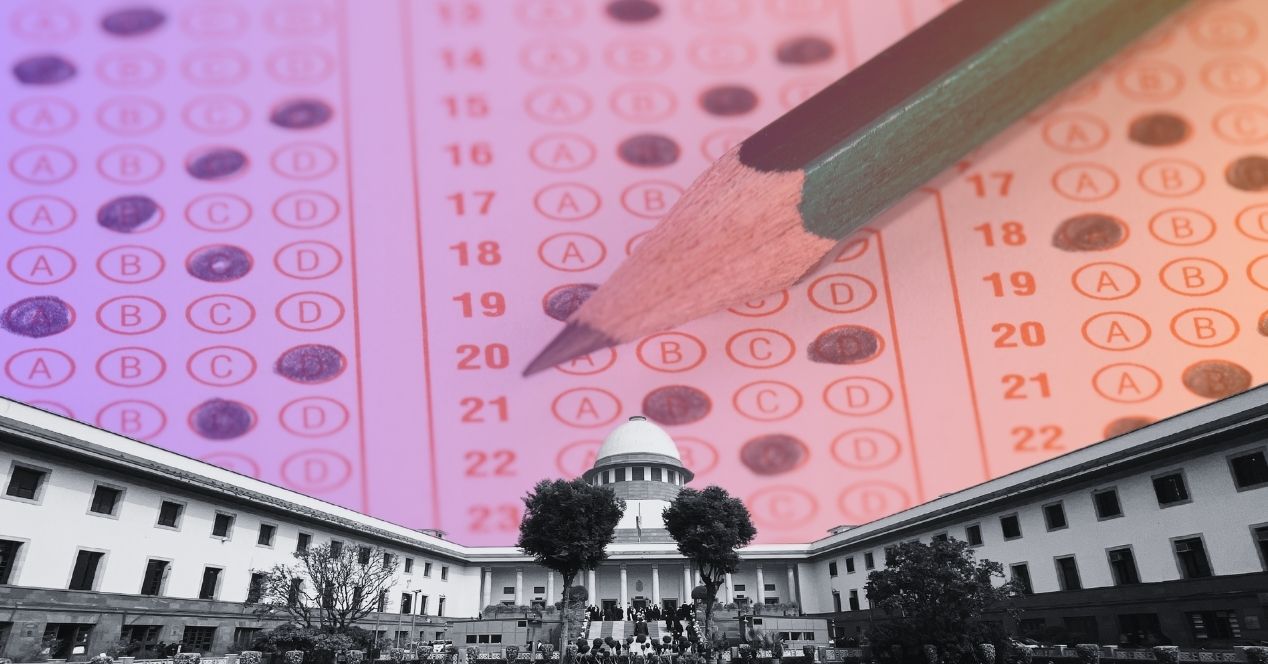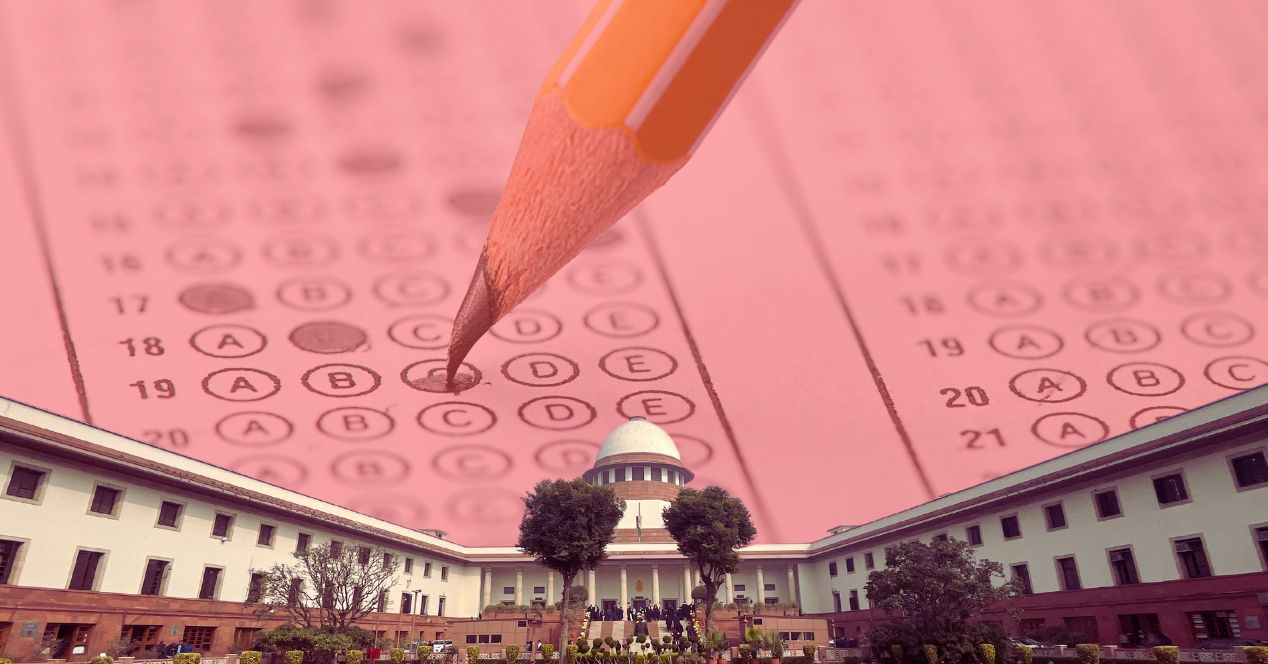Analysis
Supreme Court issues directions to High-Powered Committee to strengthen NEET exam management
The Court has directed the Committee to submit a status and compliance report by 30 September
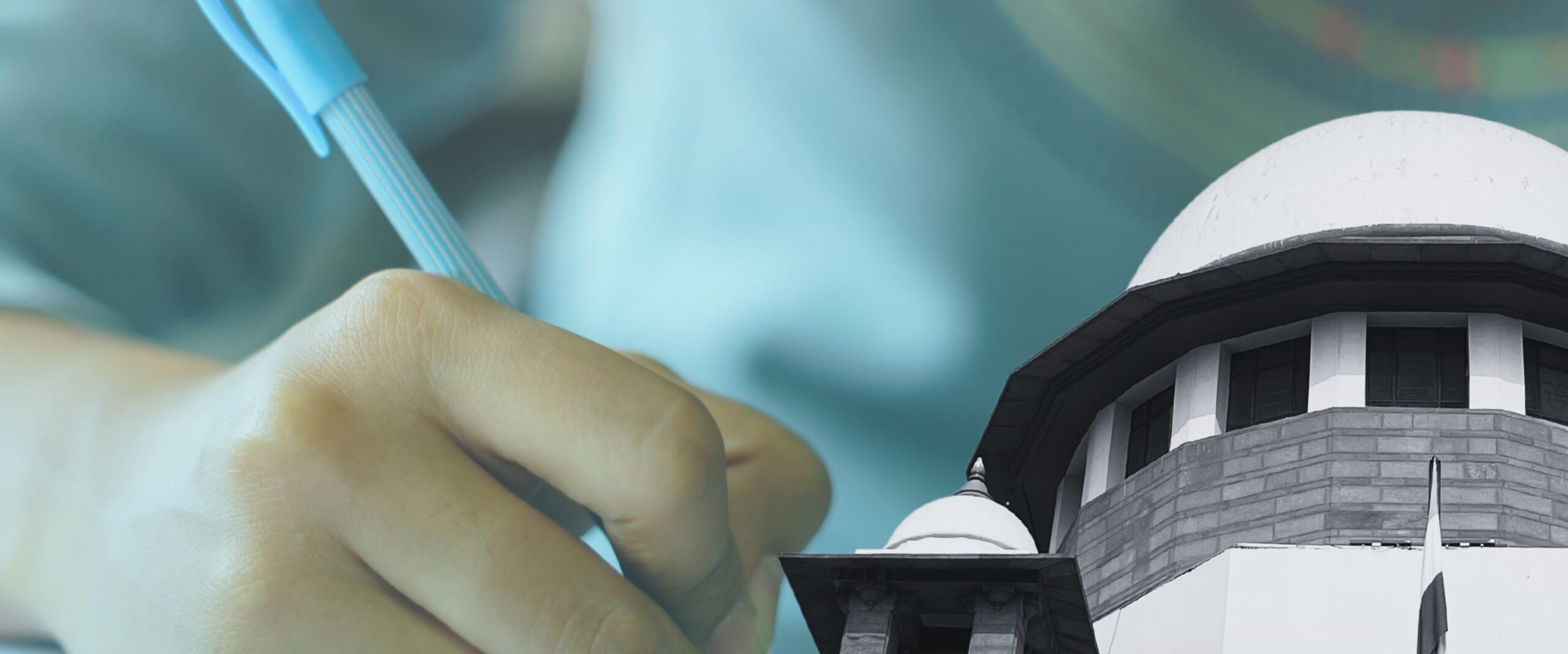
Today, a Division Bench consisting Chief Justice D.Y. Chandrachud and Justices J.B. Pardiwala and Manoj Misra delivered detailed directions to streamline and bring greater accountability to the management of the NEET UG exam, the yearly competitive exam for undergraduate medical admissions. On 23 July, the Bench had rejected a plea seeking the cancellation of the 2024 NEET UG exam after noting that there was insufficient evidence to conclude that there was a “systemic” paper leak.
Even as it decided against a retest, it had given effect to a High-Powered Committee, headed by former ISRO Chairperson Dr K. Radhakrishnan. The Committee’s goal will be to strengthen the conduct of the NEET exam by the National Testing Agency, so that widespread issues, as noticed in this year’s exam, are not repeated. That day, it had stated that a detailed judgement would follow soon.
CJI Chandrachud started the Court’s day by reading out, in quick succession, a litany of directions to the Committee. Many of the directions seemed to be in response to various “loopholes” that petitioners had highlighted in the conduct of the NEET exam. The Bench may not have agreed with their conclusions, but appears to have taken note of their concerns.
SoP must be adopted to “maintain the integrity of the exam”
During the hearings, petitioners had highlighted instances of potential mischief, such as tampering of OMR sheets by examiners, to argue that the NTA did not have a proper Standard Operating Procedure (SoP) for conducting the exams. Today, the Court directed the Evaluation Committee to formulate a robust Standard Operating Procedure “relating to the conduct of the examination” which the NTA will later adopt.
Petitioners had also highlighted instances of candidates registering with centres far away from their domiciles, suggesting that these students partook in tampering or paper leaks. On 23 July, Solicitor General Tushar Mehta had explained that NTA “respected” the choice of the students regarding their centres. However, the Court had noticed that NTA does not have use verification process in place.
In its Order today, the Court directed the Committee to “review” the process by which exam centres are allocated, and to recommend changes needed for greater “fairness and transparency”. The Committee has also been directed to recommend “stricter” procedures by which identities of candidates can be verified to prevent cases of impersonation. This may include enhanced identity checks at multiple levels, and “technological innovations”. The Court alerted the Committee to ensure that the laws of privacy are not infringed.
Stronger security protocols to be adopted for NEET
Petitioners had argued that since the exam was being largely overlooked by private parties on the ground, CCTV surveillance was supposed to be of crucial assistance to NTA. But instances across the country had suggested that CCTV surveillance had not been as robust as it should have been. The Court, today, directed the committee to “consider the viability” of “comprehensive” and “real-time” CCTV surveillance that could capture evidence of malpractices.
Throughout the hearings, the Bench had also gone into the nitty-gritties of how question papers are printed, transported, stored and distributed. In its Order, they directed the Committee to “review and suggest enhancements” to the different stages of handling the question papers. On this footing, it also asked the Committee to consider the possibility of using “closed vehicles with locks and real-time tracking systems”. So far, the papers were being transported through e-rickshaws.
The Bench recommended that the NTA organise surprise inspections across test centres to identify “potential vulnerabilities” in the system. It also recommended creating a stronger grievance redressal mechanism.
Data security and technological enhancements to improve NEET
The Court asked the Committee to suggest ways which technology can be adopted to better streamline the exam’s conduct. Specifically, the Court asked the Committee to:
- suggest advanced data security protocols to prevent unauthorised access to exam materials through encryption and secure data transmission methods.
- recommend how “digital footprints” of the exam materials can be tracked in a way that the origin of paper leaks can be determined. It suggested digital watermarking as one possibility.
- adopt regular cybersecurity auditing and vulnerability assessments of electronic dissemination.
- explore methods like digital authentication, secure online platforms and other emerging technologies to enhance the exam security and efficiency.
NTA must develop policies after consulting stakeholders
The Court gave a list of directions on the kind of policies the NTA must adopt going ahead, and how it should consult the stakeholders while developing them. It has suggested that:
- The Committee must update the policies and SoPs of NTA in a way that they respond to “evolving challenges”.
- The Committee must develop a transparent communication strategy which would keep candidates, educational institutions and the public informed about the measures being undertaken to ensure the integrity of the exam.
- A strong chain of communication must be established between key stakeholders such as banks, exam centres and logistical partners. This specific direction is likely to prevent instances such as the instance in Jhajjar, where Canara Bank employees seemed unaware that they were not supposed to hand over question paper sets to NEET city coordinators.
- Systems must be put in to ensure that regular updates regarding any issues in transportation, storage, and handling of exam materials should be given to the NTA.
- Support and resources must be given to candidates from “underprivileged” communities so that they can effectively “participate in or benefit from” the exam process.
- The NTA engages in international cooperation with exam bodies and education authorities in other countries to share best practices, security measures, and innovative solutions.
Training support to be provided for NEET staff
The Court has asked the Committee to look into various types of training programmes that can be conducted. The Committee has been asked to recommend strategies for implementation of mental health support programs for students, including counselling services and stress management workshops. Qualified experts in relevant fields are to be consulted.
The Court also directed that the NTA should conduct training programmes for all the staff involved in the exam process. This would include question setters, invigilators and “unskilled personnel”. These training workshops would touch upon security protocols, ethical standards and latest technologies.
High Powered Committee to submit its report by 30 September
The Court directed the Committee to submit a status report to the Union Minister of Education by 30 September 2024. After this, the Ministry of Education is to take a decision on the recommendation of the Committee within one month of the report’s submission. The Ministry is required to prepare and implement a plan of action on the basis of its decision.
Within two weeks of the decision on the implementation of recommendation being finalised by the Ministry, it should report compliance on these directions.
Towards the end of his pronouncement, CJI Chandrachud remarked that the “flip flops” of the NTA, did not “serve the interest of the students.”
“We have rejected the application for holding a retest,” the Chief said, “but we have said that these issues which have arisen for this year must be addressed by the Union Government by restructuring the whole process under the auspices of the High Power Committee.” Solicitor General Tushar Mehta reassured quickly, “It shall be complied with, in letter and deed.”
Reportedly, 1,100 cases have been filed against the NTA since its formation. Whether the Court’s comprehensive directions today turn the tide will remain to be seen.

